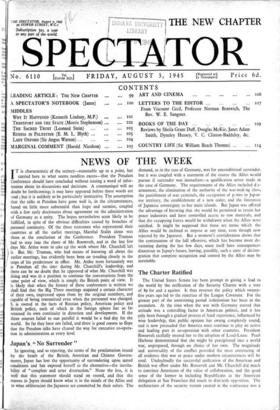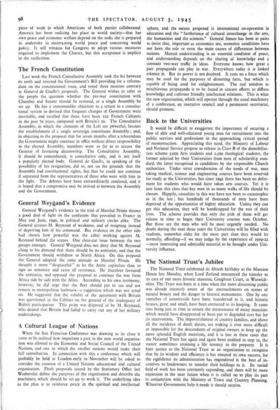The Charter Ratified
The United States Senate has been prompt in giving a lead to the world by the ratification of the Security Charter with a vote of 89 for and 2 against. It thus reverses the policy which twenty- five years ago led to the rejection of the League Covenant. For the greater part of the intervening period isolationism has been in the ascendant. At the time when the war with Germany started that attitude was a controlling factor in American politics, and it has only been through a gradual process of hard experience, influenced by wise leadership, that public opinion has swung completely round, and is now persuaded that America must continue to play an active and leading part in co-operation with other countries. President Roosevelt tactfully steered her to the adoption of Lend-Lease. Pearl Harbour demonstrated that she might be precipitated into a world war, unprepared, through no choice of her own. The magnitude and universality of the conflict provided the most convincing of all evidence that war or peace under modern circumstances will be total. Undoubtedly the successful unification of the American and British war effort under Mr. Roosevelt and Mr. Churchill did much to convince Americans of the value of collaboration, and the good sense of the former in including Republicans in the American delegation at San Francisco did much to dirn.nish opposition. The architecture of the security system created at the conference was a
piece of work in which Americans of both parties collaborated. America has been realising her place in world society—that her own peace and economic welfare depend on the tasks she is prepared to undertake in maintaining world peace and concerting world policy. It still remains for Congress to adopt various measures required to implement the Charter, but this acceptance is implicit in the ratification.























 Previous page
Previous page